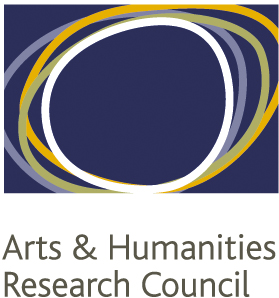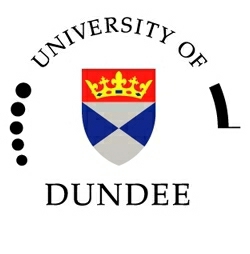I volunteered to write this because I’ve had varying experiences as a disabled academic, some good, some bad, but things I think others can learn from. I was a PhD student twice, and my illness was relevant both times. After completing the second PhD I’ve been forging my own independent path, which also faces challenges.
 Originally I was a fit young adult. I completed a bachelors degree in computer science, and was accepted for full-time PhD studies at St Andrews, funded by the EPSRC. Sadly things changed quickly. About the start of my PhD I fell ill. Initially I was diagnosed with ME, but my symptoms changed and worsened over the next two years. My supervisor was very supportive. But when it became clear I wasn’t going to get better we asked EPSRC to support a switch to part-time study. They refused, and could only suggest I take a leave of absence, and return full-time when better. I knew this would not help. Reluctantly I left that PhD in 1996. A year later I was re-diagnosed with a very aggressive life-threatening progressive neurological disease, similar day to day to multiple sclerosis, but rarer, and can kill in a flash. The treatment to slow the disease is gruelling chemotherapy which made me severely nauseous up to eight hours a day, for years. To take my mind off the worst patches I started studying history part-time with the Open University, though their advisors thought I was too ill for this. One course led to another, and with credit transfer from my science degree I earned a BA (Hons) in History and Classical Studies.
Originally I was a fit young adult. I completed a bachelors degree in computer science, and was accepted for full-time PhD studies at St Andrews, funded by the EPSRC. Sadly things changed quickly. About the start of my PhD I fell ill. Initially I was diagnosed with ME, but my symptoms changed and worsened over the next two years. My supervisor was very supportive. But when it became clear I wasn’t going to get better we asked EPSRC to support a switch to part-time study. They refused, and could only suggest I take a leave of absence, and return full-time when better. I knew this would not help. Reluctantly I left that PhD in 1996. A year later I was re-diagnosed with a very aggressive life-threatening progressive neurological disease, similar day to day to multiple sclerosis, but rarer, and can kill in a flash. The treatment to slow the disease is gruelling chemotherapy which made me severely nauseous up to eight hours a day, for years. To take my mind off the worst patches I started studying history part-time with the Open University, though their advisors thought I was too ill for this. One course led to another, and with credit transfer from my science degree I earned a BA (Hons) in History and Classical Studies.
 The Open University is a wonderful option for long-term ill and disabled students, offering good support and flexibility where needed. Though if, like me, you are too ill to attend tutorials, plus too disabled for telephone tutorials as an alternative, you can be largely on your own, and need resilience to succeed. For my next step as my disease was temporarily more stable I wanted to try face to face tuition. Looking firstly at St Andrews and its history postgraduate Masters degrees I was frustrated to find they could only be studied full-time. By contrast, Dundee offered a taught Masters in Cultural and Urban Histories, 1650-1850 which could be studied either full-time over one year, or part-time over two. I signed up eagerly. The taught section was focused on Wednesday afternoon seminars, which also suited people with work commitments. Study was flexible, and I could manage it as and when I was strong enough. Importantly I was also able to choose a dissertation topic which I could work on flexibly at home. I completed the Masters, and was the first student taking it to earn a distinction.
The Open University is a wonderful option for long-term ill and disabled students, offering good support and flexibility where needed. Though if, like me, you are too ill to attend tutorials, plus too disabled for telephone tutorials as an alternative, you can be largely on your own, and need resilience to succeed. For my next step as my disease was temporarily more stable I wanted to try face to face tuition. Looking firstly at St Andrews and its history postgraduate Masters degrees I was frustrated to find they could only be studied full-time. By contrast, Dundee offered a taught Masters in Cultural and Urban Histories, 1650-1850 which could be studied either full-time over one year, or part-time over two. I signed up eagerly. The taught section was focused on Wednesday afternoon seminars, which also suited people with work commitments. Study was flexible, and I could manage it as and when I was strong enough. Importantly I was also able to choose a dissertation topic which I could work on flexibly at home. I completed the Masters, and was the first student taking it to earn a distinction.
After that I bravely decided to have another go at a PhD. I say bravely, because leaving the first one had been a terrible wrench. But I’d found a new topic I wanted to research, and was confident I could do it well, if I could study part-time. My new supervisor was extremely supportive, and a year in I won funding  from the AHRC for the rest of my PhD. Part-time funding! Wow! It wasn’t initially as good as the support offered to full-timers, but covered all fees, some disability support costs for me, and later added a maintenance grant. Disability support services at the university were also helpful – better than anything I’d found in my time at St Andrews – and helped to arrange suitable support, including buying assistive equipment and software, and arranging an accessible venue and shorter viva for my final end of PhD oral exam. But best of all was the support from my two supervisors, who understood my need for flexibility, and supported me well. They didn’t need to understand the complex medical details, but more how the disease affected my studying, and what they could do to help. This was particularly important as my disease progressed. Towards the end I was managing the PhD on typically five hours a week, in one hour chunks spread throughout the week. One of my supervisors always said to me that he admired how I got so much good stuff done in so little time.
from the AHRC for the rest of my PhD. Part-time funding! Wow! It wasn’t initially as good as the support offered to full-timers, but covered all fees, some disability support costs for me, and later added a maintenance grant. Disability support services at the university were also helpful – better than anything I’d found in my time at St Andrews – and helped to arrange suitable support, including buying assistive equipment and software, and arranging an accessible venue and shorter viva for my final end of PhD oral exam. But best of all was the support from my two supervisors, who understood my need for flexibility, and supported me well. They didn’t need to understand the complex medical details, but more how the disease affected my studying, and what they could do to help. This was particularly important as my disease progressed. Towards the end I was managing the PhD on typically five hours a week, in one hour chunks spread throughout the week. One of my supervisors always said to me that he admired how I got so much good stuff done in so little time.
 Since completing my history PhD I’ve been unable to work in academia, due to the severely disabling illness which continues to be a problem, and is likely to become more so in future. This might have cut me off from academia completely, certainly in some fields. But humanities welcomes independent scholars. It helps that my department at Dundee has given me an ongoing honorary research fellowship, which provides access to electronic journals, which are essential, but normally restricted to current staff and students. This helps me keep up with research in my field, do new interesting research of my own, and publish more academic journal papers. I’m also giving talks at academic conferences when I can afford to go, and am strong enough. Usually I’ll need my husband to accompany me if using my wheelchair. I’ve generally found conference organisers to be very accommodating of this, usually letting him attend free as my carer and helper. I do have increasing difficulties getting to historical archives to do research on the spot, but have had great success dragging records to my home.
Since completing my history PhD I’ve been unable to work in academia, due to the severely disabling illness which continues to be a problem, and is likely to become more so in future. This might have cut me off from academia completely, certainly in some fields. But humanities welcomes independent scholars. It helps that my department at Dundee has given me an ongoing honorary research fellowship, which provides access to electronic journals, which are essential, but normally restricted to current staff and students. This helps me keep up with research in my field, do new interesting research of my own, and publish more academic journal papers. I’m also giving talks at academic conferences when I can afford to go, and am strong enough. Usually I’ll need my husband to accompany me if using my wheelchair. I’ve generally found conference organisers to be very accommodating of this, usually letting him attend free as my carer and helper. I do have increasing difficulties getting to historical archives to do research on the spot, but have had great success dragging records to my home.
 Looking back on my experiences I think the main lesson to be taken from my case and applied more widely is that people’s circumstances can change unexpectedly, and it’s vital that universities and funding councils are flexible enough to support in such circumstances. I’m pleased, for example, that EPSRC now offers part-time funding where needed. But they didn’t during my time, and I was left in an untenable situation as a result. But I hope I have also shown how someone can overcome many obstacles. And while I may be unable to work in academia in any paid capacity, I am still pursuing an academic path.
Looking back on my experiences I think the main lesson to be taken from my case and applied more widely is that people’s circumstances can change unexpectedly, and it’s vital that universities and funding councils are flexible enough to support in such circumstances. I’m pleased, for example, that EPSRC now offers part-time funding where needed. But they didn’t during my time, and I was left in an untenable situation as a result. But I hope I have also shown how someone can overcome many obstacles. And while I may be unable to work in academia in any paid capacity, I am still pursuing an academic path.
Vivienne, You are really brave/strong person! thank you for writing this motivating speech
but I don’t understand – is the second PhD was so important for you, that you decided to continue study instead of leaving it and considering on your treatment? or why don’t you asked a help of your friends or some services like the ones described at Huffingtonpost article or take some long-term academic vacation?